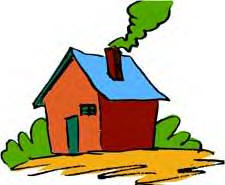Definition:
* Vomiting is the forceful emptying (throwing up) of a large portion of the stomach’s contents through the mouth
* Nausea and abdominal discomfort usually precede each bout of vomiting
Causes:
* Main Cause: Stomach infection (gastritis) from a stomach virus (eg, rotavirus). The illness starts with vomiting but diarrhea usually follows within 12 to 24 hours.
* Food poisoning from toxins produced by bacteria growing in poorly refrigerated foods (eg, Staphylococcus toxin in egg salad, Bacillus cereus toxin in rice dishes)
* Serious Causes: If vomiting persists as an isolated symptom (without diarrhea) for more than 24 hours, more serious causes must be considered. Examples are appendicitis, kidney infection, meningitis, and head injury.
* Vomiting can also be triggered by hard coughing. This is common, especially in children with reflux.
Severity of Vomiting:
Te following is an arbitrary attempt to classify vomiting by risk for dehydration:
* Mild: 1 to 2 times a day
* Moderate: 3 to 7 times a day
* Severe: Vomits everything or nearly everything, or 8 or more times a day
* Severity relates even more to the length of time that the particular severity level has persisted. At the beginning of a vomiting illness (especially following food poisoning), it’s common for a child to vomit everything for 3 or 4 hours and then become stable with mild or moderate vomiting.
* The younger the child, the greater the risk for dehydration
Return to School: Your child can return to child care or school after vomiting and fever are gone
 Call 911 Now (Your Child May Need an Ambulance) If:
Call 911 Now (Your Child May Need an Ambulance) If:
* Unresponsive or difficult to awaken
* Not moving or too weak to stand
Call Your Doctor Now (or in Alberta, canada call 780-408-LINK) If:
* Your child looks or acts very sick
* Confused (delirious)
* Stiff neck or bulging soft spot
* Headache
* Signs of dehydration (very dry mouth, no tears, and no urine in more than 8 hours)
* Blood in the vomit that’s not from a nosebleed
* Bile (bright yellow or green) in the vomit
* Abdominal pain is also present (EXCEPTION: Abdominal pain or crying just before and improved by vomiting is quite common)
* Appendicitis suspected (eg, pain low on right side, won’t jump, prefers to lie still)
* Diabetes suspected (excessive drinking, frequent urination, weight loss)
* Poisoning with a plant, medicine, or other chemical suspected
* Child is younger than 12 weeks with vomiting 2 or more times (EXCEPTION: spitting up)
* Receiving Pedialyte (or clear fluids if older than 1 year) and vomits everything longer than 8 hours
* High-risk child (eg, diabetes mellitus, abdominal injury, head injury)
* Weak immune system (eg, sickle cell disease, HIV, chemotherapy, organ transplant, chronic steroids)
* Vomiting an essential medicine
* Fever above 104°F (40°C) and not improved 2 hours after fever medicine
* Child is younger than 12 weeks with fever above 100.4°F (38.0°C) rectally (CAUTION: Do NOT give your baby any fever medicine before being seen)
Call Your Doctor Within 24 Hours (Between 9:00 am and 4:00 pm) If:
* You think your child needs to be seen
* Has vomited longer than 24 hours
* Fever present for more than 3 days
* Fever returns after gone for longer than 24 hours
Call Your Doctor During Weekday Office Hours If:
* You have other questions or concerns
* Vomiting is a recurrent chronic problem
Parent Care at Home If:
* Mild to moderate vomiting (probably viral gastritis) and you don’t think your child needs to be seen
 Home Care Advice for Vomiting:
Home Care Advice for Vomiting:
1. Reassurance:
* Most vomiting is caused by a viral infection of the stomach or mild food poisoning
* Vomiting is the body’s way of protecting the lower intestinal tract
* Fortunately, vomiting illnesses are usually brief
2. For Bottle-fed Infants, Offer Oral Rehydration Solution (ORS) for 8 Hours:
* ORS (eg, Pedialyte, store brand) is a special electrolyte solution that can prevent dehydration. It’s readily available in supermarkets and drugstores.
* For vomiting once, continue regular formula
* For vomiting more than once, offer ORS for 8 hours. If ORS is not available, use formula.
* Spoon or syringe feed small amounts of ORS —1 to 2 teaspoons (5 to 10 mL) every 5 minutes.
* After 4 hours without vomiting, double the amount
* After 8 hours without vomiting, return to regular formula
* For infants older than 4 months, also return to cereal and strained bananas
* Return to normal diet in 24 to 48 hours
3. For Breastfed Infants, Reduce the Amount Per Feeding:
* If infant vomits once, nurse 1 side every 1 to 2 hours
* If infant vomits more than once, nurse for 5 minutes every 30 to 60 minutes. After 4 hours without vomiting, return to regular breastfeeding.
* If infant continues to vomit, switch to ORS (eg, Pedialyte) for 4 hours
* Spoon or syringe feed small amounts of ORS —1 to 2 teaspoons (5 to 10 mL) every 5 minutes
* After 4 hours without vomiting, return to regular breastfeeding. Start with small feedings of 5 minutes every 30 minutes and increase as tolerated.
4. For Children Older Than 1 Year, Offer Small Amounts of Clear Fluids for 8 Hours:
* Water or ice chips are best for vomiting in older children (Reason: water is directly absorbed across the stomach wall)
* ORS: If child vomits water, offer ORS (eg, Pedialyte). If child refuses ORS, use half-strength Gatorade
* Give small amounts —2 to 3 teaspoons (10 to 15 mL) every 5 minutes
* Other Options: Half-strength flat lemon-lime soda, popsicles, or ORS frozen pops
* After 4 hours without vomiting, increase the amount
* After 8 hours without vomiting, return to regular fluids
* CAUTION: If vomiting continues for more than 12 hours, switch to ORS or half-strength Gatorade
* Solids: After 8 hours without vomiting, add solids
– Limit solids to bland foods. Starchy foods are easiest to digest
– Start with saltine crackers, white bread, cereals, rice, and mashed potatoes
– Return to normal diet in 24 to 48 hours
5. Avoid Medicines:
* Discontinue all nonessential medicines for 8 hours (Reason: usually make vomiting worse)
* Fever: Fevers usually don’t need any medicine. For higher fevers, consider acetaminophen (eg, Tylenol) suppositories. Never give oral ibuprofen (eg, Advil); it is a stomach irritant
* Call your doctor if your child is vomiting an essential medicine
6. Sleep: Help your child go to sleep for a few hours (Reason: sleep often empties the stomach and relieves the need to vomit). Your child doesn’t have to drink anything if she feels very nauseated.
7. Contagiousness: Your child can return to child care or school after vomiting and fever are gone.
8. Expected Course: Vomiting from viral gastritis usually stops in 12 to 24 hours. Mild vomiting with nausea may last up to 3 days
9. Call Your Doctor If:
* Vomiting becomes severe (vomits everything) longer than 8 hours
* Vomiting persists longer than 24 hours
* Signs of dehydration
* Your child becomes worse
Based on recommendations/advice in “My Child is Sick; Expert Advice for Managing Common Illnesses and Injuries”, 14th Edition, by Barton D. Schmitt


